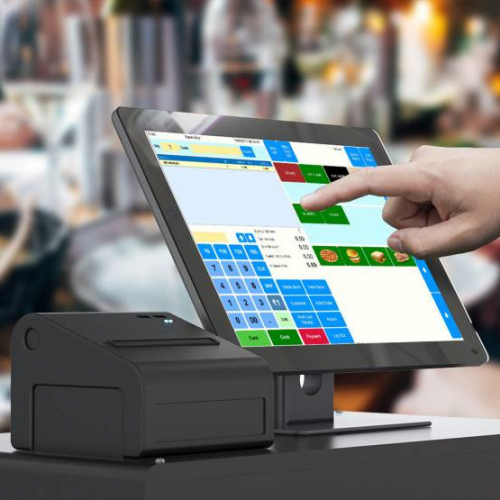The term Point of Sale POS was widely used as a reference to cashiers hidden behind a counter. However, in today’s ever-changing business world, it has evolved to become a flexible, intelligent, and mission-critical platform that supports not just transactions, but the whole customer experience.
The way that consumers consume food, shop and engage with companies has drastically changed. They demand speed, flexibility and a personal touch no matter the industry. The latest POS systems are designed to do more than just ring up the sales. They also connect every aspect of a business to one integrated system.

POS Systems are Business Intelligence Hubs
The concept of point of sale has evolved. It’s no longer just about buying something, but also about gathering data, optimizing your operation and improving your customer relationship. Point-of-sale POS system that we have today is more than take payments. It aids in analyzing the inventory of employees and track their productivity. It generates actionable reports on sales, as well being able to identify buying patterns in different seasons and customer segments.
Imagine a boutique in a small space using a retail POS. Instead of manually counting stocks or guessing which styles are in style The POS system monitors top-selling items and alerts you to low-stock and even suggests reorders based current trends. Cloud-based connectivity enables the same owner to check their store’s performance throughout the day during their vacation.
Industry-Specific Flexibility
Modern POS software can be used in every vertical market. At one end you can find restaurants that require live order routing to kitchens as well as tip tracking and table-side payment choices. On the other hand beauty salons rely on appointment scheduling, client information, and prepaid package management. These requirements are quite different and the best point of sale POS systems are tailored accordingly.
The two businesses are bonded by the need for smart automated systems and simple. A bar might prioritize quick tap-to pay terminals, for instance, while the hardware store is focused on the scanning of barcodes as well as inventory synchronization across departments. A well-designed POS system can adapt to every situation, and without any hassle.
Integration of Payment Security and Processing
Security is no longer optional it’s required. Businesses that accept digital or card transactions, need to safeguard their personal data. Secure, end-to-end encrypted payment processing is available in dependable point-of sale POS systems that integrate with trusted brands like Chase, Moneris and First Data.
The integration goes much deeper than safety. The speed is another factor. Businesses don’t want to have to contend with slow card readers, reports that aren’t matched and delayed deposits. By implementing a unified system that incorporates transactions processing and sales tracking businesses can close faster, be more organized and get rid of headaches at the end of each day.
The business is growing, Don’t Be Afraid
Scalability is often ignored, especially by small business. Many businesses start out with a basic set-up, but then discover that it can’t handle many locations, loyalty programs or an online order. Modern POS systems are designed to scale with an organization, from a sole proprietor to a franchise.
Retailers, specifically, profit from retail POS systems that sync store purchases with e-commerce platforms. This seamless integration ensures that inventory information is correct throughout the day, shoppers are more satisfied with their shopping and the owners can are able to save time as they do not have to switch between platforms.
Conclusion: Smarter Sales Begins with the Point of Sale
Point of sale POS has developed a lot since being just a transaction tool. It’s now a core part of the way a company operates and learns. By investing in a tailored, secure, and intelligent point of sale POS system, businesses aren’t just improving their checkout process they’re laying a digital foundation for long-term success.
In the age of increasing expectations from customers, businesses can’t afford to treat the POS as an afterthought. In many ways, the real heartbeat of any modern operation lives right where the sale takes place.
